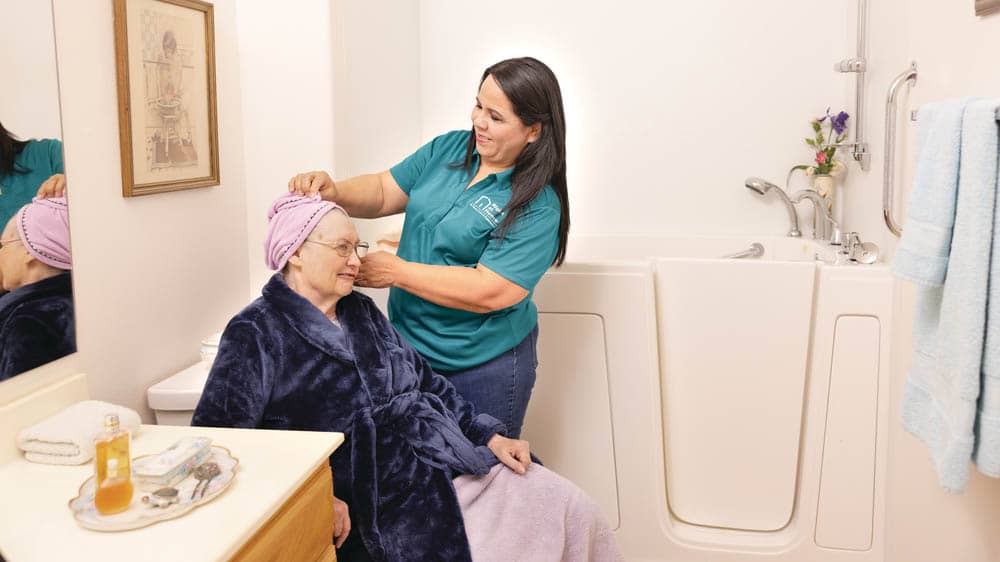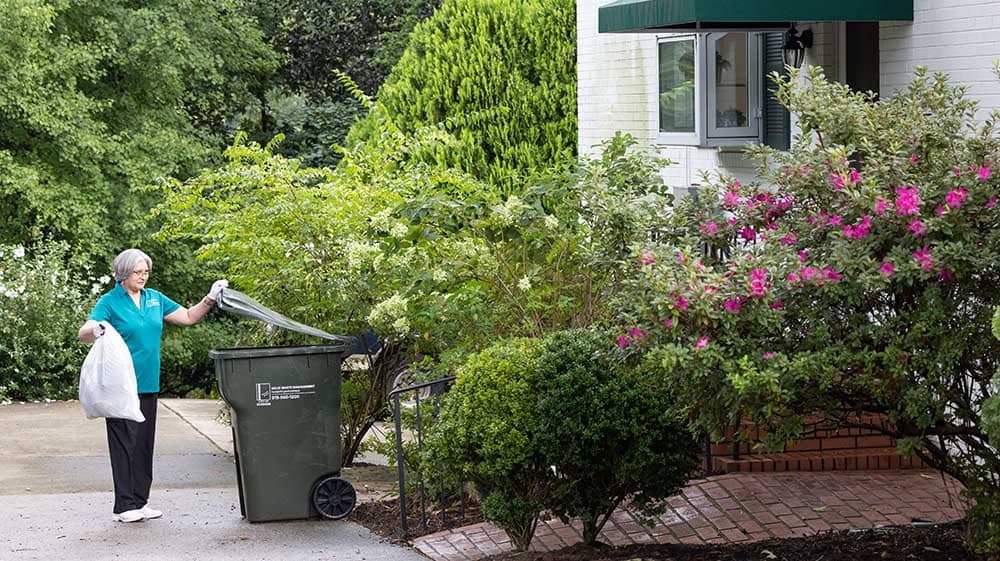

Bathing Battles: Tips for Overcoming Your Senior’s Refusal To Bathe
Nobody likes being around someone who does not practice good hygiene. Dirty, greasy hair, filthy ears, teeth that aren’t brushed, and noticeable body odor are bad enough. In extreme cases, ignoring basic personal grooming, bathing, and showering can be a gateway for disease and infection. It is one thing when a child resists or refuses to get clean, but quite another when an adult does it, particularly if that senior happens to be your spouse, sibling, parent, grandparent, aunt, uncle, or beloved mentor.
First Step: Figure Out Why They Are Refusing To Bathe
If the senior in your life or your care is resistant to showering/bathing or flat out refuses to do so, then you can be sure something is impairing their decision-making. It could be one reason or a combination of factors, which only makes the senior’s defiance stronger and your job as a loved one or caregiver harder. Among the many reasons, it could be one of these:
- Their acting out may be a result of fear, anxiety or depression. An older person who has become socially isolated and cut off from all but a few family and friends may lose interest or motivation for how they maintain their health, well-being and hygiene. Even mild depression can intensify the feeling of not caring anymore.
- A senior who has fallen and injured themself in the bathroom previously, especially when maneuvering in and out of the tub or shower, may develop a fear of that space and the dangers it poses. For the elderly, this can be exacerbated by compromised sight or mobility.
- They may have lost enough sense of smell that they simply don’t notice their own odor.
- They may be experiencing age-appropriate forgetfulness or, more alarmingly, early-onset dementia.
Whatever the case, when an older person stops taking care of themself, the first thing you should do, experts advise, is try to understand what’s causing the behavior. That doesn’t mean badgering or judging them about what’s going on. It means finding ways to communicate with them that are not perceived as pressuring, belittling or threatening. It may take time and the help of their physician or another trusted figure to get an understanding of what is behind their behavior. However, once you do, you will know the senior is not choosing to be difficult but is expressing legitimate concerns about falling, for example. If it is due to depression, mental illness, or cognitive decline, then at least you will know and can address it.
Ways To Work With Your Older Loved One
Knowing the trigger is a start, but getting the senior to take regular hygiene steps can require empathy, patience, ingenuity and diplomacy. The last thing you want is a battle of wills or to push the senior so far to change their behavior that they blow up or close down. Instead, experts advise the following:
- Lead with compassion. Recognize that even tasks like showering/bathing and cutting toenails can be a challenge for some older people. Don’t dismiss or laugh off their challenge, but accept it for what it is as you devise solutions.
- Make getting clean a team goal or effort. Avoid pointed phrases like “How can you let yourself go like that,” “You’re filthy,” or “You smell.” Instead, take the focus off their troubling behavior and motivate them by saying, “We should shower today before we go to lunch,” or “Let’s get ready for this beautiful day outside by freshening ourselves up.” Whether you attach a meal or another activity to their after-bathing experience, the idea is to associate being clean with fun, positive things the senior enjoys doing or identifies with. That way, they may come to expect that one thing leads to or follows the other. That approach also can allow your loved one to participate in the decision and can give them something to anticipate.
- Reduce or help eliminate fear-based objections to showering. Install grab bars, tub rails, nonslip mats, and hand-held, adjustable showerheads. Watch for rugs and other things on the floor as well. While you’re at it, take a look around the house to see what other fall prevention strategies you should implement.
- Stay positive. Praise and encourage your senior loved one with any steps they take toward better care of themself.
- Enlist a trusted authority figure. If you struggle to make headway, try consulting their physician or some other authority figure or confidante whose advice they trust.
- Balance independence with support. Help your loved one as necessary, but also let them retain as much independence as they can safely assume. If it’s not necessary or possible to be in the bathroom with them as they shower or bathe, then with their permission, position yourself just outside the door or nearby so they know that if they need help, you’re only a few steps away. As much as possible, let them choose the hour they shower or bathe, and try adjusting your schedule accordingly if their safety demands you or someone else to be there with them.
- Consider a sponge bath. If all else fails, then settle for your senior taking sponge baths or using wipes. It’s no substitute for a thorough, full body wash, but it’s better than nothing. And it just might be the bridge that gets them to take the next steps toward better cleanliness and healthier habits.
How Right at Home Can Help
A professional caregiver may be a suitable option to help an older person with bathing. Right at Home’s compassionate caregivers can assist older people with their personal hygiene and other in-home care services, including companionship and specialized services such as our Dementia and Cognitive Support Program. Use our office locator to find the office closest to you and ask for a FREE in-home consultation.
Interested in family caregiving tips and resources? Subscribe to our Caring Right at Home e-newsletter and receive them straight into your email inbox.







